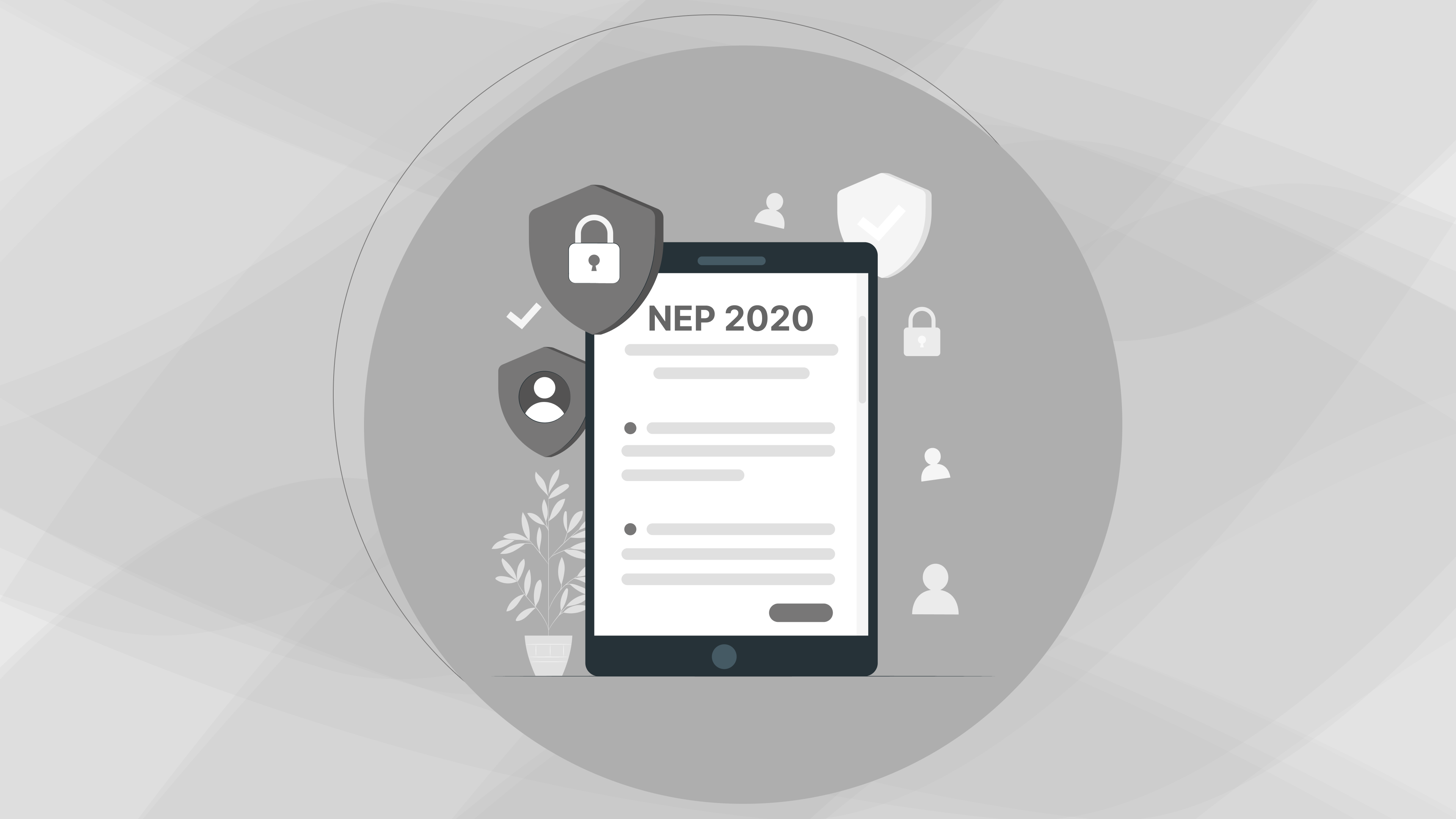NEP 2020
NEP 2020
NEP 2020
What is National Education Policy 2020? Benefit and features
What is National Education Policy 2020? Benefit and features
What is National Education Policy 2020? Benefit and features
23 Jan 2025
23 Jan 2025
23 Jan 2025



Introduction
The National Education Policy (NEP) 2020 marks a monumental shift in India’s education system, aiming to bring it in line with global standards while retaining the essence of Indian values and culture. It is designed to transform the educational framework to make it more inclusive, flexible, and skill-oriented, addressing the needs of the 21st century. In this blog, we’ll dive deep into what the National Education Policy 2020 is, its benefits for students and teachers, and its innovative features.
What is National Education Policy 2020?
The National Education Policy 2020 is a comprehensive policy framework introduced by the Government of India to overhaul the education system. It replaces the previous National Policy on Education, 1986, and focuses on creating a more holistic, flexible, and multidisciplinary education system.
The NEP 2020 emphasizes:
Foundational literacy and numeracy.
Early childhood care and education.
A 5+3+3+4 structure replacing the traditional 10+2 format.
Integration of vocational education.
Emphasis on digital learning and technology.
Promotion of regional languages while fostering global knowledge.
It aims to create learners who are not only well-educated but also well-rounded individuals ready for global challenges.
Benefits of National Education Policy 2020
For Students
Personal Development
The NEP 2020 encourages holistic development by balancing academics with extracurricular activities, fostering creativity, critical thinking, and emotional intelligence in students.
Fixed Learning Path
With the introduction of the 5+3+3+4 system, students experience age-appropriate learning phases. This structure ensures a gradual and well-rounded development, especially in the foundational years.
Reduced Curriculum Stratches
The curriculum is redesigned to focus on essential concepts and reduce unnecessary content, ensuring that students learn efficiently without being overwhelmed by rote memorization.
Equal Education
The policy emphasizes inclusivity, ensuring equal access to quality education for marginalized communities, differently-abled individuals, and girls, bridging the gap in educational opportunities.
Focus on Skill Development
NEP 2020 integrates vocational training and skill development into mainstream education, making students job-ready and fostering an entrepreneurial mindset from an early age.
For Teachers
Professional Development
The NEP provides avenues for continuous professional development, enabling teachers to enhance their skills and stay updated with modern teaching methodologies.
Opportunities for New Teaching Practices
Teachers are encouraged to adopt innovative teaching practices that are learner-centric, making education more engaging and effective.
Technology-Driven
With a significant focus on digital learning, teachers are equipped with technological tools and platforms to deliver high-quality education.
Leadership and Mentorship
The NEP aims to empower teachers by providing leadership roles and mentorship opportunities, enabling them to guide their peers and students effectively.
Teacher Empowerment
Through structured training programs and workshops, the policy fosters teacher autonomy, giving them the freedom to innovate within the curriculum framework.
Learning Community
The policy promotes the creation of learning communities where teachers can collaborate, share knowledge, and grow collectively.
Features of National Education Policy 2020
Digital Transformation
The NEP integrates technology into all aspects of education, promoting digital classrooms, e-learning platforms, and the development of digital content in regional languages to ensure accessibility.
Global Recognition
By aligning the Indian education system with international standards, the NEP makes Indian qualifications globally competitive and recognized, opening doors to better career opportunities.
Quality Education
The focus is on improving learning outcomes through experiential and multidisciplinary education, ensuring that students receive a world-class education.
Inclusive Education
The policy emphasizes the inclusion of underrepresented groups, promoting equal opportunities for all students regardless of their socio-economic background.
Learner-Centric Approach
The NEP encourages a shift from traditional rote learning to a learner-centric approach. This fosters creativity, analytical thinking, and problem-solving skills among students.
Conclusion
The National Education Policy 2020 is a forward-thinking initiative that seeks to revolutionize the Indian education system. By focusing on holistic development, skill-building, inclusivity, and digital transformation, the NEP aims to prepare students and teachers for the challenges of the future. As this policy gets implemented nationwide, it promises to create an empowered and well-educated generation capable of contributing meaningfully to society.
Introduction
The National Education Policy (NEP) 2020 marks a monumental shift in India’s education system, aiming to bring it in line with global standards while retaining the essence of Indian values and culture. It is designed to transform the educational framework to make it more inclusive, flexible, and skill-oriented, addressing the needs of the 21st century. In this blog, we’ll dive deep into what the National Education Policy 2020 is, its benefits for students and teachers, and its innovative features.
What is National Education Policy 2020?
The National Education Policy 2020 is a comprehensive policy framework introduced by the Government of India to overhaul the education system. It replaces the previous National Policy on Education, 1986, and focuses on creating a more holistic, flexible, and multidisciplinary education system.
The NEP 2020 emphasizes:
Foundational literacy and numeracy.
Early childhood care and education.
A 5+3+3+4 structure replacing the traditional 10+2 format.
Integration of vocational education.
Emphasis on digital learning and technology.
Promotion of regional languages while fostering global knowledge.
It aims to create learners who are not only well-educated but also well-rounded individuals ready for global challenges.
Benefits of National Education Policy 2020
For Students
Personal Development
The NEP 2020 encourages holistic development by balancing academics with extracurricular activities, fostering creativity, critical thinking, and emotional intelligence in students.
Fixed Learning Path
With the introduction of the 5+3+3+4 system, students experience age-appropriate learning phases. This structure ensures a gradual and well-rounded development, especially in the foundational years.
Reduced Curriculum Stratches
The curriculum is redesigned to focus on essential concepts and reduce unnecessary content, ensuring that students learn efficiently without being overwhelmed by rote memorization.
Equal Education
The policy emphasizes inclusivity, ensuring equal access to quality education for marginalized communities, differently-abled individuals, and girls, bridging the gap in educational opportunities.
Focus on Skill Development
NEP 2020 integrates vocational training and skill development into mainstream education, making students job-ready and fostering an entrepreneurial mindset from an early age.
For Teachers
Professional Development
The NEP provides avenues for continuous professional development, enabling teachers to enhance their skills and stay updated with modern teaching methodologies.
Opportunities for New Teaching Practices
Teachers are encouraged to adopt innovative teaching practices that are learner-centric, making education more engaging and effective.
Technology-Driven
With a significant focus on digital learning, teachers are equipped with technological tools and platforms to deliver high-quality education.
Leadership and Mentorship
The NEP aims to empower teachers by providing leadership roles and mentorship opportunities, enabling them to guide their peers and students effectively.
Teacher Empowerment
Through structured training programs and workshops, the policy fosters teacher autonomy, giving them the freedom to innovate within the curriculum framework.
Learning Community
The policy promotes the creation of learning communities where teachers can collaborate, share knowledge, and grow collectively.
Features of National Education Policy 2020
Digital Transformation
The NEP integrates technology into all aspects of education, promoting digital classrooms, e-learning platforms, and the development of digital content in regional languages to ensure accessibility.
Global Recognition
By aligning the Indian education system with international standards, the NEP makes Indian qualifications globally competitive and recognized, opening doors to better career opportunities.
Quality Education
The focus is on improving learning outcomes through experiential and multidisciplinary education, ensuring that students receive a world-class education.
Inclusive Education
The policy emphasizes the inclusion of underrepresented groups, promoting equal opportunities for all students regardless of their socio-economic background.
Learner-Centric Approach
The NEP encourages a shift from traditional rote learning to a learner-centric approach. This fosters creativity, analytical thinking, and problem-solving skills among students.
Conclusion
The National Education Policy 2020 is a forward-thinking initiative that seeks to revolutionize the Indian education system. By focusing on holistic development, skill-building, inclusivity, and digital transformation, the NEP aims to prepare students and teachers for the challenges of the future. As this policy gets implemented nationwide, it promises to create an empowered and well-educated generation capable of contributing meaningfully to society.
Introduction
The National Education Policy (NEP) 2020 marks a monumental shift in India’s education system, aiming to bring it in line with global standards while retaining the essence of Indian values and culture. It is designed to transform the educational framework to make it more inclusive, flexible, and skill-oriented, addressing the needs of the 21st century. In this blog, we’ll dive deep into what the National Education Policy 2020 is, its benefits for students and teachers, and its innovative features.
What is National Education Policy 2020?
The National Education Policy 2020 is a comprehensive policy framework introduced by the Government of India to overhaul the education system. It replaces the previous National Policy on Education, 1986, and focuses on creating a more holistic, flexible, and multidisciplinary education system.
The NEP 2020 emphasizes:
Foundational literacy and numeracy.
Early childhood care and education.
A 5+3+3+4 structure replacing the traditional 10+2 format.
Integration of vocational education.
Emphasis on digital learning and technology.
Promotion of regional languages while fostering global knowledge.
It aims to create learners who are not only well-educated but also well-rounded individuals ready for global challenges.
Benefits of National Education Policy 2020
For Students
Personal Development
The NEP 2020 encourages holistic development by balancing academics with extracurricular activities, fostering creativity, critical thinking, and emotional intelligence in students.
Fixed Learning Path
With the introduction of the 5+3+3+4 system, students experience age-appropriate learning phases. This structure ensures a gradual and well-rounded development, especially in the foundational years.
Reduced Curriculum Stratches
The curriculum is redesigned to focus on essential concepts and reduce unnecessary content, ensuring that students learn efficiently without being overwhelmed by rote memorization.
Equal Education
The policy emphasizes inclusivity, ensuring equal access to quality education for marginalized communities, differently-abled individuals, and girls, bridging the gap in educational opportunities.
Focus on Skill Development
NEP 2020 integrates vocational training and skill development into mainstream education, making students job-ready and fostering an entrepreneurial mindset from an early age.
For Teachers
Professional Development
The NEP provides avenues for continuous professional development, enabling teachers to enhance their skills and stay updated with modern teaching methodologies.
Opportunities for New Teaching Practices
Teachers are encouraged to adopt innovative teaching practices that are learner-centric, making education more engaging and effective.
Technology-Driven
With a significant focus on digital learning, teachers are equipped with technological tools and platforms to deliver high-quality education.
Leadership and Mentorship
The NEP aims to empower teachers by providing leadership roles and mentorship opportunities, enabling them to guide their peers and students effectively.
Teacher Empowerment
Through structured training programs and workshops, the policy fosters teacher autonomy, giving them the freedom to innovate within the curriculum framework.
Learning Community
The policy promotes the creation of learning communities where teachers can collaborate, share knowledge, and grow collectively.
Features of National Education Policy 2020
Digital Transformation
The NEP integrates technology into all aspects of education, promoting digital classrooms, e-learning platforms, and the development of digital content in regional languages to ensure accessibility.
Global Recognition
By aligning the Indian education system with international standards, the NEP makes Indian qualifications globally competitive and recognized, opening doors to better career opportunities.
Quality Education
The focus is on improving learning outcomes through experiential and multidisciplinary education, ensuring that students receive a world-class education.
Inclusive Education
The policy emphasizes the inclusion of underrepresented groups, promoting equal opportunities for all students regardless of their socio-economic background.
Learner-Centric Approach
The NEP encourages a shift from traditional rote learning to a learner-centric approach. This fosters creativity, analytical thinking, and problem-solving skills among students.
Conclusion
The National Education Policy 2020 is a forward-thinking initiative that seeks to revolutionize the Indian education system. By focusing on holistic development, skill-building, inclusivity, and digital transformation, the NEP aims to prepare students and teachers for the challenges of the future. As this policy gets implemented nationwide, it promises to create an empowered and well-educated generation capable of contributing meaningfully to society.

Issue Digital Credetials, Certificate, marksheet instant with Secure Blockchain Technology.

Issue Digital Credetials, Certificate, marksheet instant with Secure Blockchain Technology.

Issue Digital Credetials, Certificate, marksheet instant with Secure Blockchain Technology.
Read More Blogs
Read More Blogs
Read More Blogs

Why Digital Credentials Are Becoming a Global Standard for Skill Recognition
27 Feb 2025

how to validate digital signature in certificate online
27 Feb 2025

how to download Issued certificate from digilocker
5 Feb 2025
